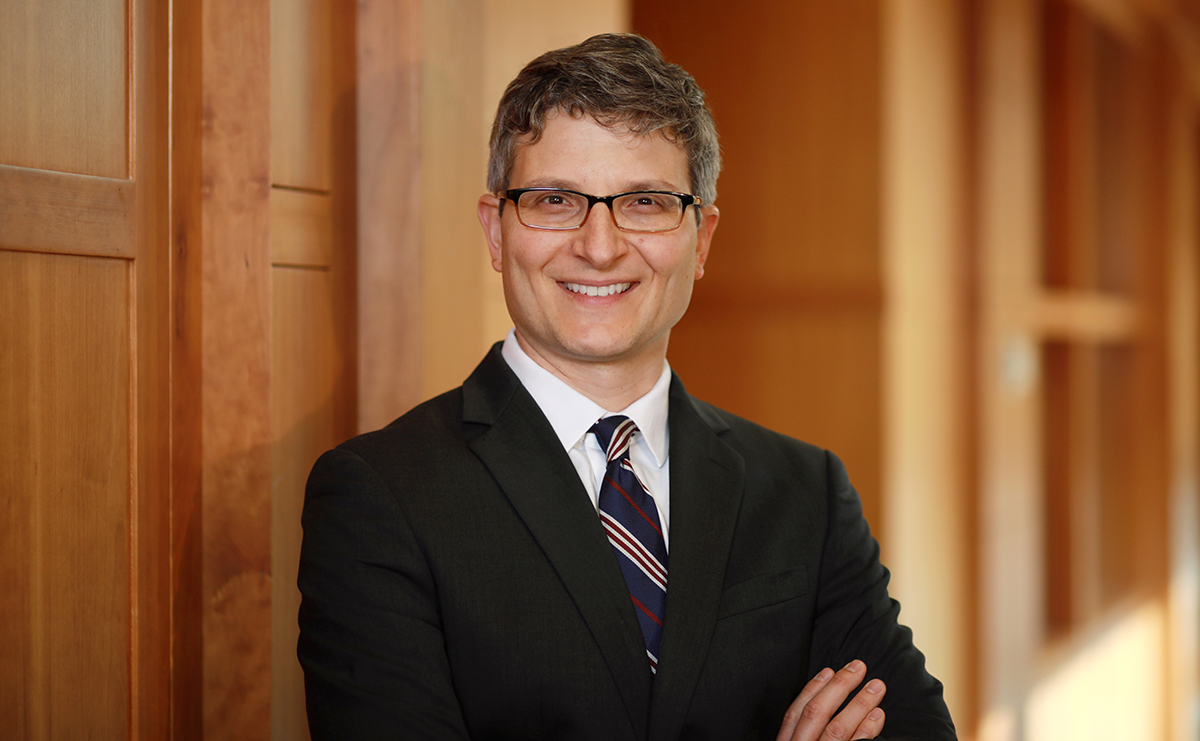As Michael Gilbert sees it, the information you consume should be at least as reliable as the refrigerator in your kitchen.
Fed up with fake news — as well as false accusations of fake news — the University of Virginia law professor and vice dean teamed up with co-author Yonathan Arbel to create a system that incentivizes newspapers and politicians to tell the truth by rewarding anyone who catches them in a lie.
Together, they sketched out the idea for this truth-seeking missile in a working paper, “Truth Bounties: A Market Solution to Fake News,” recently published in the SSRN database.
In September, they incorporated a nonprofit, called Pledged, to implement the idea. Their system would put the equivalent of a warranty sticker on websites that have pledged to tell the truth, the whole truth and nothing but the truth.
 Michael Gilbert teaches courses on election law, legislation, and law and economics at UVA, and is the co-author of the new book “Public Law and Economics.”
Michael Gilbert teaches courses on election law, legislation, and law and economics at UVA, and is the co-author of the new book “Public Law and Economics.”
“It’s a way of saying, ‘If what I’m telling you turns out not to be true, I have to pay for it,’” Gilbert said. “It’s a warranty on speech, and that warranty gives consumers confidence that this must be a good product.”
Gilbert, who specializes in law and economics, has long stewed over the problem of policing lies without running afoul of the Constitution’s free speech protections. In late 2018, he ran across a short blog post by Arbel, calling the infamous 19th-century “Carbolic Smoke Ball” advertisement the first truth bounty. The ad promised to pay 100 pounds to any consumer who used the smoke ball but still contracted influenza. The bounty would be drawn from a 1,000-pound bond the company had deposited at a bank.
“Under the simplest version of this, a freelancer who’s posting a story on Medium could use their credit card to make a payment to a third-party that holds the money in escrow during a challenge period,” Gilbert said of his policing mechanism. “But there are other ways to do it — The New York Times or Fox News or The Wall Street Journal or whatever could pay an insurer a premium, and then the insurer would be on the hook to pay if somebody proved the story was false.”
Arbel, a law professor at the University of Alabama, and Gilbert are now working through the details of how such a system would work.
Besides building a website presence and discussing the problem with psychologists and economists, the Pledged co-founders have been in conversations with potential partners who could provide funding, technology and programming, and arbitration services.
“It’s like a chicken-and-egg problem,” Gilbert said. “Once the system is operating, one can imagine it sustaining itself at a pretty low cost, but getting the system operating is expensive, and we need to get people to use the system when they don’t yet know it and don’t necessarily trust it.”
It’s unclear whether the likely outcome of a truth-bounty system would be more truthful media and politicians or a more discerning public. Gilbert stressed that there is a limit to what even the most well-designed system could do for democratic politics.
“Unfortunately, many people who consume media and news aren’t interested in the truth. They’re interested in having people parrot what they already believe. Our system can't make a difference for people like that,” Gilbert said. “But there are other people out there who really do want the truth and are just confused — they can’t tell the good sources from the bad — and for them, I think the system could really help.”
Founded in 1819, the University of Virginia School of Law is the second-oldest continuously operating law school in the nation. Consistently ranked among the top law schools, Virginia is a world-renowned training ground for distinguished lawyers and public servants, instilling in them a commitment to leadership, integrity and community service.


